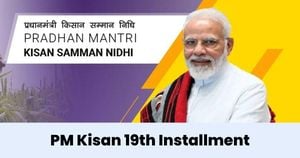Thaksin Shinawatra, the former Prime Minister of Thailand, made headlines during his recent visit to Narathiwat province on February 24, 2023. This marked Thaksin's return to Thailand and was filled with poignant reflections on past political traumas, particularly his acknowledgment of his administration's role during the Tak Bai incident, which resulted in numerous casualties back in 2004. During his visit, he expressed, "I apologize for the mistakes made during the Tak Bai incident back in 2004," directly addressing the emotional scars left on the southern region of Thailand.
The political atmosphere surrounding Thaksin's visit was tense, with many analysts observing the current situation as reflective of deep divisions within Thai politics. Ekari Tuanseri, a political analyst from Prince of Songkla University, remarked, "This situation reflects deep political divisions, especially after the Senate elections." His comments raise questions about the current relationships between political factions, especially with the Democratic Party and the ruling coalition led by Thaksin's Pheu Thai Party.
Thaksin's public reconciliation attempts appear strategically timed as they coincide with growing concerns over the government's effectiveness, particularly concerning the southern insurgency—a long-standing conflict. Phumitham, a representative of the government, voiced optimism, stating, "We are confident to resolve the southern insurgency problem within the next year," hinting at policy changes aligned with Thaksin's return.
Political analysts have noted the significance of this moment and the potential ramifications it could hold for Thailand's political future. The discussions highlighted Thaksin's intent to unify disparate political factions as the country gears up for significant elections. These elections will be with the Senate, often referred to as the "blue senator" faction, which has faced allegations of political maneuvering and underlying tensions within the governing body.
Adding to the complexity, just before Thaksin's visit, the Cambodian government announced plans to repatriate 127 Thai nationals who had been detained for engaging with operations at call centers. This scenario compounded the political issues at play, challenging the government to address both external and internal pressures.
Public sentiment appears mixed as many Thai citizens are cautious about Thaksin's return and his potential influence over the government. Previous experiences with his leadership have generated skepticism, and the recent events leading to his visit are potent reminders of the fraught political history of Thailand.
Thaksin's apology and engagement with the Narathiwat community may very well be part of his broader strategy to rekindle support among the southern populace, which has faced persistent violence and instability. His actions seem to signal not only personal accountability but perhaps also aim to exert some influence over contemporary political narratives.
The next few months will be pivotal as the Thai government confronts the challenges associated with Thaksin's re-entry and the existing tensions within the Senate. Political maneuvers are likely to intensify as various factions seek to establish or reinforce their power bases.
Moving forward, political discussions will need to pivot rapidly as election deadlines loom and various factions attempt to position themselves favorably. Thaksin's approach may influence not only the dynamics within Pheu Thai Party but also necessitate reassessments from former rivals.
All eyes will remain sharply focused on how this situation evolves, highlighting the delicate balance of power at play, and whether genuine reconciliation can replace historical grievances. The Thai public is cautiously hopeful, yet the specter of the past may continue to cast long shadows over the political developments of the present.



